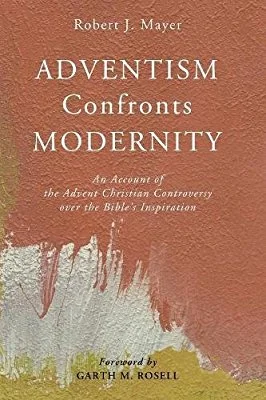Articles about Dialogue
Last week, my article “Denominational Tectonics” caused a bit of a firestorm amongst the readership of Advent Christian Voices. To be honest, that was one of my goals. I was trying, through confrontational and colorful language, to get people’s attention. What I failed to anticipate, however, is the way that my tone and candor may have deepened the divisions that I desired merely to identify and assess.
There is a joke that I have heard and, admittedly, said, many times within our denomination: “The primary qualification for any board position is saying yes.” It is certainly in jest, but often stems from the frequent frustration caused by the difficulties of finding candidates for our many board positions.
Sometimes I see something or hear something that makes me want to scream, “Hypocrite!” However, to make such a statement in person or online would in fact reveal my own hypocrisy. Usually it surrounds the things of Christian Liberty.
in part 2 we zoom in to examine one major culprit in ministry fragmentation and how to solve it
At the 2017 ERA annual meeting, President Steve Brown of BICS presented the idea that the major barrier to unity within the Advent Christians is “theological fragmentation.” The major proposed solution, assuming one accepts the premise, was a call for a hermeneutical reformation (a la Kaiser as exemplar) to reinvigorate and reestablish basic, core, essential principles of interpretation in hopes of gaining unity of mind together.
It is seldom the case that an initiative born from impulse lives on to see much success. In my life, I have been inspired at various times to try my hand at something, only to see it eventually fail. Nevertheless, I still find myself trying.
The title of this article is punctuated with a question mark because of the embryonic stage at which it is being put forward. In his latest two-part series, “Advent Christians in the 21st Century”, Corey McLaughlin has set before us what is in my estimation one of the most pivotal reflections on Adventism in late Advent Christian history. Conditionalism has dominated Advent Christian identity in the latter part of our history, but McLaughlin has reminded us of our other hand, in fact what was once our dominant hand, which is our Adventism.
The reason we are talking about unity is because we have a sense that we are lacking in unity.
In the article, “Where Are Tomorrow’s Leaders?” published recently on the Advent Christian Voices website, and reprinted from the Advent Christian Witness, veteran Advent Christian pastor Steven Brown poses an important question. He argues that the traditional model of theological education in a seminary or divinity school no longer serves the needs of the Advent Christian Church.
Before I get on with what I am about to write, I want to first dispel any narrow association that might be assumed in my use of the word “mission”. Very often when we hear the word “mission” we think “missions”, and more specifically “foreign missions”. This is to be expected since the sort of talk in our churches that typically involves words that sound like “mission” are usually in association with short-term missions trips and supporting foreign missionaries.
Original Post: Identity: What does it mean to be an Advent Christian?
Answer: With the passing of our new Statement of Faith we have given ourselves a much greater sense of identity. Advent Christians are Evangelical followers of Jesus Christ who seek to make Christ’s name known throughout the world with a longing for the imminent return of Christ, finding our only hope in Him.
In a recent Advent Christian Voices article, Corey McLaughlin examines conditionalists’ treatment of Revelation 20:7-10 and concludes that our exegesis of that text has been “poor”, and based on “logic stretched thin.” He suggests that our problem is that we are trying to make Revelation 20 say that the lake of fire will come to an end, but that the text insists that it will not. To accurately reflect what is taught in Revelation 20:10, conditionalism will need to be modified to allow for the eternal conscious torment of the devil and his demonic agents.
Something is happening in the Advent Christian denomination. There has been a pain that we have been carrying within us, the sharp hurt of hopelessness, the heavy burden of futility, a bitter irony for a denomination conceived in hope. If as Bob Dylan says, “He not busy being born is busy dying”, until now it has seemed that we made the latter our business, sauntering our way to a denominational dustbin. There has been no reason to believe anything else.
Is “No Creed but the Bible” actually faithful to the Bible? It is a simple question that can spur a lot of debate, but it is worth asking and trying to answer so that our churches and the denomination as a whole can become biblically stronger, healthier, and more unified. Here are 10 reasons we should pull a Frozen and “Let it go!” (If I had hair, I’d sling it back while I sang the song, but you will just have to imagine that for yourself!).
I’m new to the denomination and have been working as the Director of Student Ministry at Oak Hill Bible Church in Oxford, MA for the last two years. I came in as a Southern Baptist, but through the mentorship of others I found inconsistencies in my view of anthropology and eschatology; I’m now a conditionalist. As my good friend Nathaniel now likes to say, “Erik is a Reformed Baptist Adventist” or in other words, “Erik is two parts jerk and one part confused.”(I'll let you figure out the formula) During my short tenure, I’ve noticed that we have several issues as a denomination that many have tried to fix, most will recognize that we still have a lot of work to do. In this piece, I would like to tell you what I’m looking for next week at Triennial as a new Adventist who plans to stay here awhile.
Before I launch into my feelings relative to the proposed NAE Statement of Faith to be considered by the delegates to the 2017 Advent Christian General Conference Triennial Convention, permit me to share a bit of my personal history as an Advent Christian and pastor of 40 years.
I do not believe that there is the remotest chance that this proposed [Statement of Faith] will fail to pass at the Triennial Convention. I personally know of no one, for sure, that is planning to vote against it.*
We successfully passed the resolution for ACGC to officially embrace the NAE Statement of Faith and become a full member of NAE at the 1987 ACGC Convention (in Charleston, WV, of all places; at the time a bastion of A.C. non-trinitarianism).
In recent years, there has been a noticeable lack of published work offering any comment upon Advent Christian history and the important theological developments that have occurred over the years. Into this gap has stepped Robert J. Mayer with his book Adventism Confronts Modernity: An Account of the Advent Christian Controversy over the Bible’s Inspiration.
...we are unable to forget that the Advent Christian tradition has taught us that we are to have, “No creed but the Bible”. On the surface, this does not appear to present any problems since same-sex unions seem to be unequivocally condemned throughout the Bible. However, this sense of ease overlooks one of the basic implications that result from adhering to the statement, “No creed but the Bible.”
Anyone who is familiar with the Advent Christian denomination knows that much of our history as a denomination has been defined by ardent non-creedalism. This has stemmed from the steadfast conviction that while Scripture is infallible, man is inescapably fallible, and thus whatever interpretation man may render of infallible Scripture, his fallible interpretation cannot be used as a reliable means of determining correct belief.
Why is it that open discussion has largely fallen out of practice in Advent Christian circles? How is it that a denomination that is so full of diversity and was quite noisy during the 20th century is now quieter than a church mouse?






















I encourage you to enter the conversation or start one. Do you have ideas on how to serve our local homeless communities better? Share your lessons. Are you struggling with the implications of your theology regarding your fellowship? Someone else probably is, too. This is why many of us write: to share our thoughts, express our doubts, and introduce ideas that could be helpful to the brethren. This is how we dwell in unity.